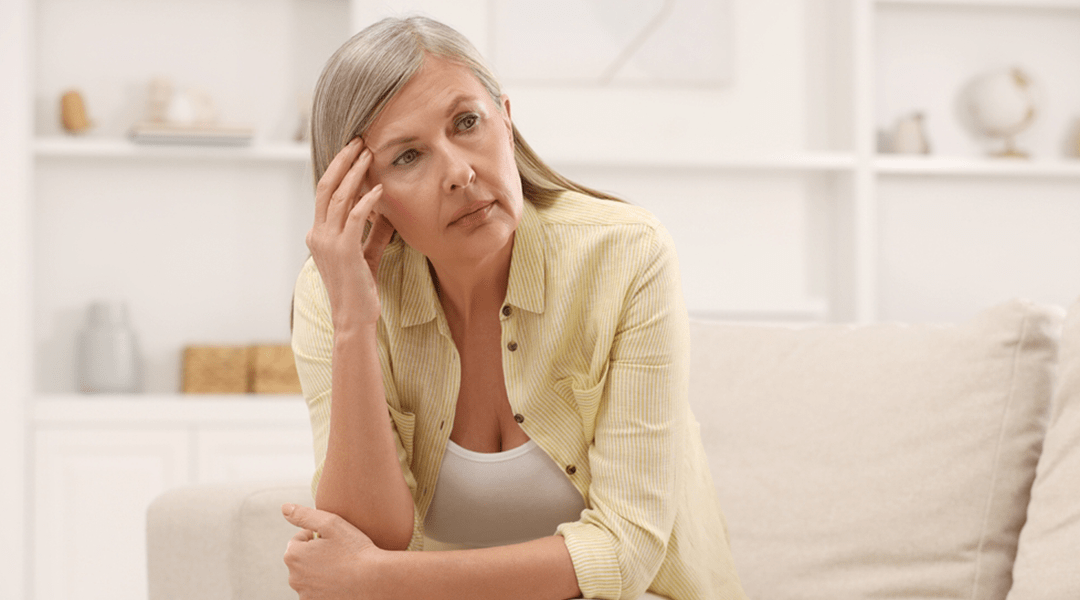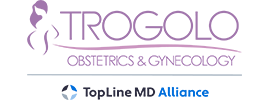At Trogolo Obstetrics and Gynecology, one of the most common (and surprising) conversations I have with women under 45 is about menopause. Specifically, they come in with concerns like, “Am I too young for this?” or “Could these hot flashes be hormonal changes already?” And the answer? Sometimes, yes. Early menopause symptoms are real—and while they may be unexpected, they’re not always a cause for alarm.
As an experienced obstetrician in Jacksonville, Florida, I believe it’s essential that women understand how early menopause works, how it presents, and what can be done. Whether you’re in your 30s or early 40s, this article will guide you through the facts, dispel the myths, and help you take control of your reproductive health.
What Is Early Menopause?
Menopause is officially defined as the point in time when a woman hasn’t had a menstrual period for 12 consecutive months. The average age of natural menopause in the U.S. is about 51. However, when menopause begins before the age of 45, we call it early menopause. If it starts before age 40, it’s classified as premature menopause or premature ovarian insufficiency (POI).
If you’re wondering how early menopause can start, the truth is that for some women, symptoms may begin as early as their mid-30s. This can be due to a range of causes—from genetics to autoimmune conditions to surgical interventions like hysterectomy or chemotherapy.
Regardless of the reason, early menopause can come as a shock. That’s why identifying the signs of early menopause is so important—so we can intervene, support you, and guide your next steps.
What Are the Symptoms of Early Menopause?
The symptoms of early menopause are often very similar to those experienced during natural, age-appropriate menopause—but they tend to feel more jarring, especially when they arise earlier than expected.
Here’s what many of our patients report:
1. Irregular or Missed Periods
One of the earliest indicators is a change in menstrual cycles. Periods may become lighter, heavier, more frequent, or disappear for months.
2. Hot Flashes and Night Sweats
Sudden heat waves, flushing skin, and sweating at night are hallmark signs that your hormones (especially estrogen) are fluctuating.
3. Vaginal Dryness or Discomfort
Lower estrogen can lead to thinning of vaginal tissues, causing dryness, irritation, or even pain during intimacy.
4. Mood Swings and Irritability
Hormonal changes impact the brain, too. If you’re experiencing anxiety, depression, or a short fuse, it may be related to estrogen decline.
5. Sleep Disturbances
Many women struggle with insomnia, waking up frequently at night, or not feeling rested.
6. Decreased Libido
A dip in sexual desire is common and can be due to both hormonal changes and physical discomfort.
7. Brain Fog and Difficulty Concentrating
Are you having trouble focusing or remembering things? Estrogen influences cognitive function so that fogginess can be a symptom.
These are the early menopause symptoms we see most frequently, and when multiple signs show up together—especially in your 30s or early 40s—it’s time to talk to a provider.

The Youngest Age for Menopause: Is It Possible?
One of the most frequent questions I hear is: “What is the youngest age for menopause?”
While rare, menopause can occur in women as young as their late teens or 20s—often due to autoimmune issues, genetic mutations, or as a result of medical treatments like chemotherapy or radiation.
The youngest age for menopause generally refers to cases of premature ovarian insufficiency, which affects approximately 1% of women under 40. In these cases, periods stop, estrogen plummets, and the woman is no longer able to conceive naturally.
That said, early menopause doesn’t always mean infertility. Some women still ovulate intermittently and can conceive, especially with medical support. That’s why it’s important to address symptoms early and explore options with a gynecology specialist in Jacksonville, Florida.
How Early Can Menopause Start?
If you’ve noticed changes in your body, and you’re in your 30s or early 40s, you may be wondering: “How early can menopause start for real?”
Perimenopause—the transitional stage before menopause—can begin 8 to 10 years before your final period. That means hormonal fluctuations may kick in as early as your mid-30s.
Factors that can influence how early menopause begins include:
- Family history – If your mother or sister experienced early menopause, your risk increases.
- Smoking – Smoking is linked to earlier menopause.
- Medical treatments – Chemotherapy, radiation, or surgical removal of the ovaries.
- Autoimmune diseases – Such as thyroid disorders or lupus.
- Chromosomal abnormalities – Like Turner syndrome or Fragile X.
So yes, it is entirely possible—and not uncommon—for women in their late 30s to experience signs of early menopause. What matters most is how we recognize and respond to those symptoms.
Why You Shouldn’t Ignore Early Menopause Symptoms
When menopause happens early, it’s not just about ending fertility—it can impact your overall health. Estrogen plays a protective role in many areas of the body, including:
- Bone health – Early menopause raises the risk of osteoporosis and fractures.
- Heart health – Estrogen helps regulate cholesterol and protect blood vessels.
- Cognitive health – Hormonal changes have been linked to memory issues and even increased dementia risk.
Because of these potential complications, it’s critical to identify and manage symptoms of early menopause proactively. Treatment options are available, and they’re not one-size-fits-all. At Trogolo, we take a personalized approach based on your age, symptoms, goals, and family planning needs.
What to Expect at Your Visit
If you’re experiencing early menopause symptoms, the first step is a comprehensive consultation. Here’s what we usually recommend:
- Detailed Health History – We’ll explore your cycle patterns, symptoms, family history, and overall well-being.
- Hormonal Testing – Blood tests can evaluate levels of estrogen, follicle-stimulating hormone (FSH), and other markers of ovarian function.
- Pelvic Exam and Ultrasound – To assess uterine and ovarian health.
- Bone Density Scan (DEXA) – If menopause is confirmed, we may recommend a scan to evaluate bone health.
- Lifestyle and Nutritional Assessment – We’ll discuss protecting your body through diet, movement, and wellness routines.
Our goal isn’t just to diagnose—it’s to empower. You deserve to understand what’s happening in your body and your options.

Treatment and Support Options
There is no universal solution to early menopause symptoms, but there are highly effective ways to manage them, including:
1. Hormone Replacement Therapy (HRT)
HRT can replace declining estrogen levels and reduce symptoms like hot flashes, night sweats, and bone loss. We’ll assess your health risks and benefits carefully.
2. Non-Hormonal Therapies
For women who can’t or don’t want to take hormones, we explore natural and prescription alternatives to manage specific symptoms.
3. Bone Health Support
Calcium, Vitamin D, and weight-bearing exercises preserve bone density.
4. Fertility Counseling
If you still hope to have children, there may be a window for fertility preservation or assisted reproductive options. We’ll walk you through every scenario.
5. Mental Health Support
Menopause can affect mood, memory, and identity. We partner with therapists and counselors to provide emotional support when needed.
When to See a Gynecology Specialist
If you’re under 45 and experiencing one or more of the following, it’s time to consult a gynecology specialist in Jacksonville, Florida:
- Irregular or skipped periods
- Persistent hot flashes
- Changes in libido or vaginal dryness
- Difficulty concentrating or sleeping
- A family history of early menopause
- Fertility concerns
We’re here to listen, investigate, and help you feel like yourself again.
Final Thoughts: Your Body, Your Timeline
Menopause is a natural part of life—but when it comes earlier than expected, it can be confusing, emotional, and even frightening. At Trogolo Obstetrics and Gynecology, we believe every woman deserves clear answers, compassionate care, and expert guidance.
If you’re noticing signs of early menopause, don’t ignore them. Knowledge is power; the earlier we identify what’s happening, the more options we’ll have. Your health matters, your comfort matters, and your future still holds countless possibilities.
Feeling unsure? Request an appointment with our experienced team today. Let’s talk, test, and tailor a care plan supporting your body, hormones, and peace of mind.



